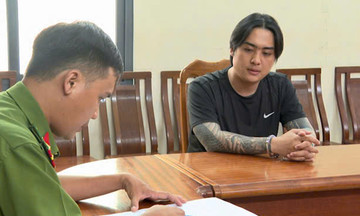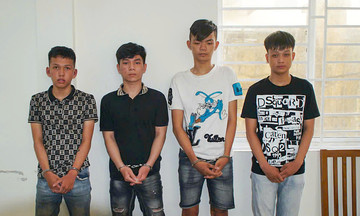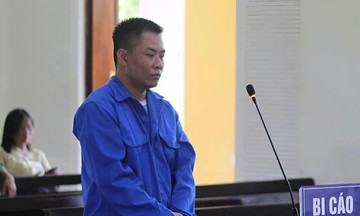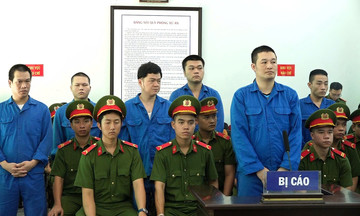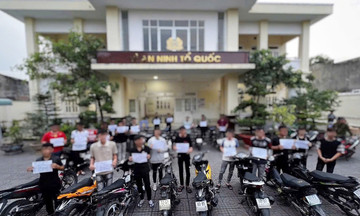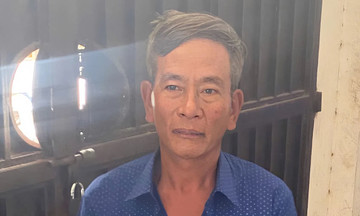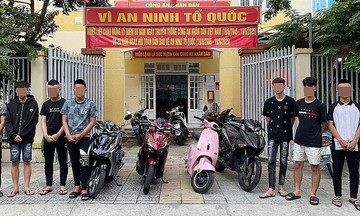On 18/8, the National Cybersecurity Association and the Department of Cybersecurity and High-Tech Crime Prevention under the Ministry of Public Security co-hosted a conference titled "KOLs in the Era of National Rise." Over 300 key opinion leaders (KOLs) attended.
Major General Le Xuan Minh, Director of the Department of Cybersecurity, emphasized the significant role KOLs play in shaping public perception, driving trends, and promoting Vietnamese values globally. He envisions them as "digital ambassadors" contributing to Vietnam's development.
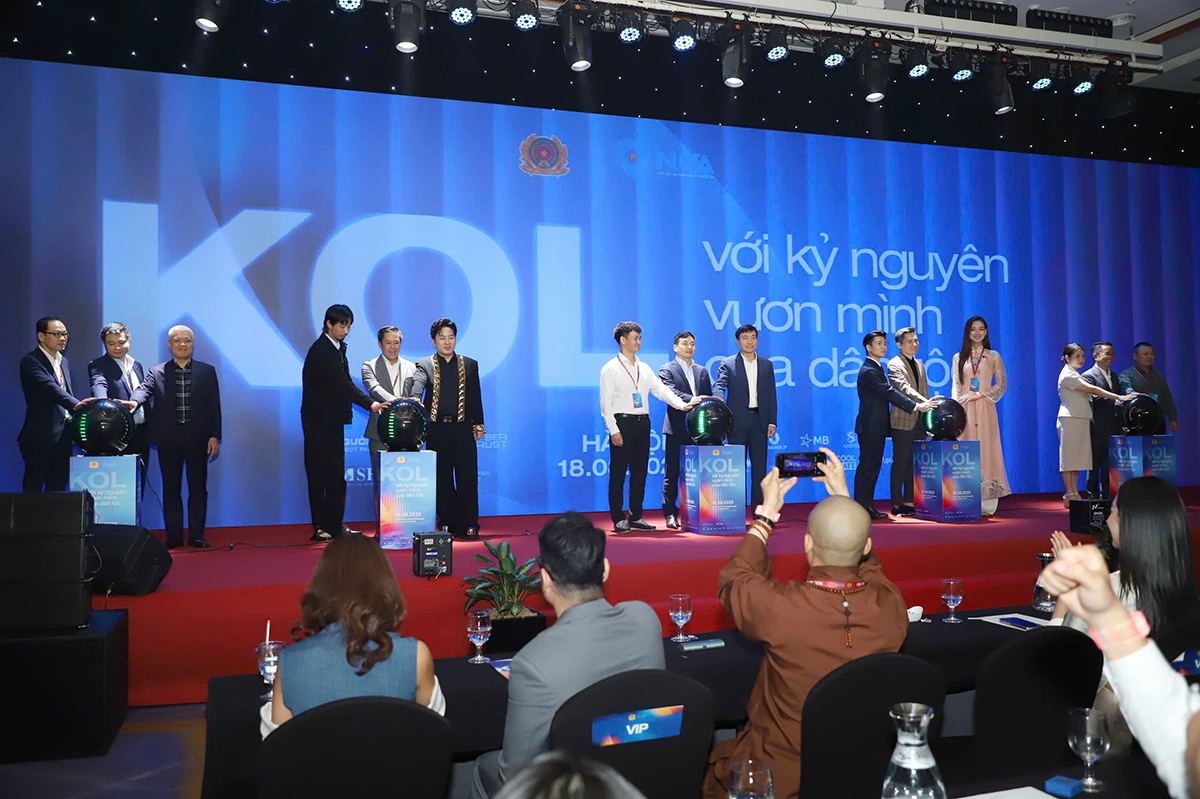 |
Representatives launch the "Digital Trust" Alliance. Photo: Pham Du |
Representatives launch the "Digital Trust" Alliance. Photo: Pham Du
Minh stated that the Party and State are committed to fostering a healthy environment for KOLs. Given their influence, KOLs must be mindful of their words, images, and actions. He called for collaboration between management agencies and tech platforms to support KOLs in promoting positive values and driving economic and cultural growth.
The "Digital Trust" Alliance, launched at the conference, aims to unite KOLs, management agencies, platforms, businesses, and the press to combat fake news, online fraud, and non-transparent advertising, while promoting positive values.
The "Influencer Trust" program was also initiated to establish a system for evaluating the credibility and social responsibility of KOLs. This tool will assist the public, businesses, and platforms in identifying and collaborating with trustworthy individuals who promote positive values.
Nguyen Thi Thanh Huyen, Deputy Director of the Broadcasting, Television and Electronic Information Department, Ministry of Culture, Sports and Tourism, highlighted the lack of specific regulations for managing KOLs, despite many violating laws, ethics, and cultural norms. She proposed penalties for misconduct, including restricting media appearances for those who negatively impact society. Huyen suggested the Ministry of Culture, Sports and Tourism might develop regulations on restricting the appearance of violators. She noted that implementing such measures would require time for communication, guidance, and inter-ministerial coordination.
Citing China's experience, Huyen explained that the country views KOLs as symbols of cultural and social values and role models for youth. China prioritizes KOL management as central to cultural governance. Chinese KOLs are prohibited from engaging in illegal or unethical activities. When advertising, they must be transparent and distinguish between personal opinions and paid endorsements. Violators face severe penalties, from fines to imprisonment or even being blacklisted, a highly effective measure. Huyen added that several Chinese KOLs have been blacklisted for years or even permanently, significantly impacting their careers. The three agencies authorized to impose penalties are the National Radio and Television Administration, the Cyberspace Administration of China, and the Publicity Department of the Communist Party of China.
Huyen also mentioned South Korea, where celebrities are held to high standards and can easily lose public support if they violate laws or ethical norms. Unlike China, media outlets and television stations in South Korea, not government agencies, impose regulations and boycotts on KOLs. Over the past 15 years, several South Korean celebrities have been boycotted for years or even permanently.
Regarding Vietnam, Huyen recommended that advertising companies and brands carefully consider the credibility of KOLs before signing contracts. This protects brand safety and ensures transparency. She encouraged KOLs to participate in policy communication, create positive digital content, preserve culture, and act as "cultural ambassadors" to promote Vietnamese culture globally.
At the conference, Hoang Ninh, Deputy Director of the Department of E-commerce and Digital Economy, Ministry of Industry and Trade, acknowledged the growing role of KOLs in e-commerce. However, he noted that some KOLs exploit their influence to sell counterfeit or low-quality products. Others provide misleading information, harming businesses, brands, and public trust.
Do Quang Vinh, Vice Chairman of SHB Bank's Board of Directors, described KOLs as opinion leaders, ranging from managers, experts, entrepreneurs, educators, doctors, and journalists to young content creators. He believes that if properly guided, KOLs can amplify the nation's aspirations for development.
The conference included a discussion on "Trust and Expectations," focusing on the trust between KOLs and the public in the digital age.
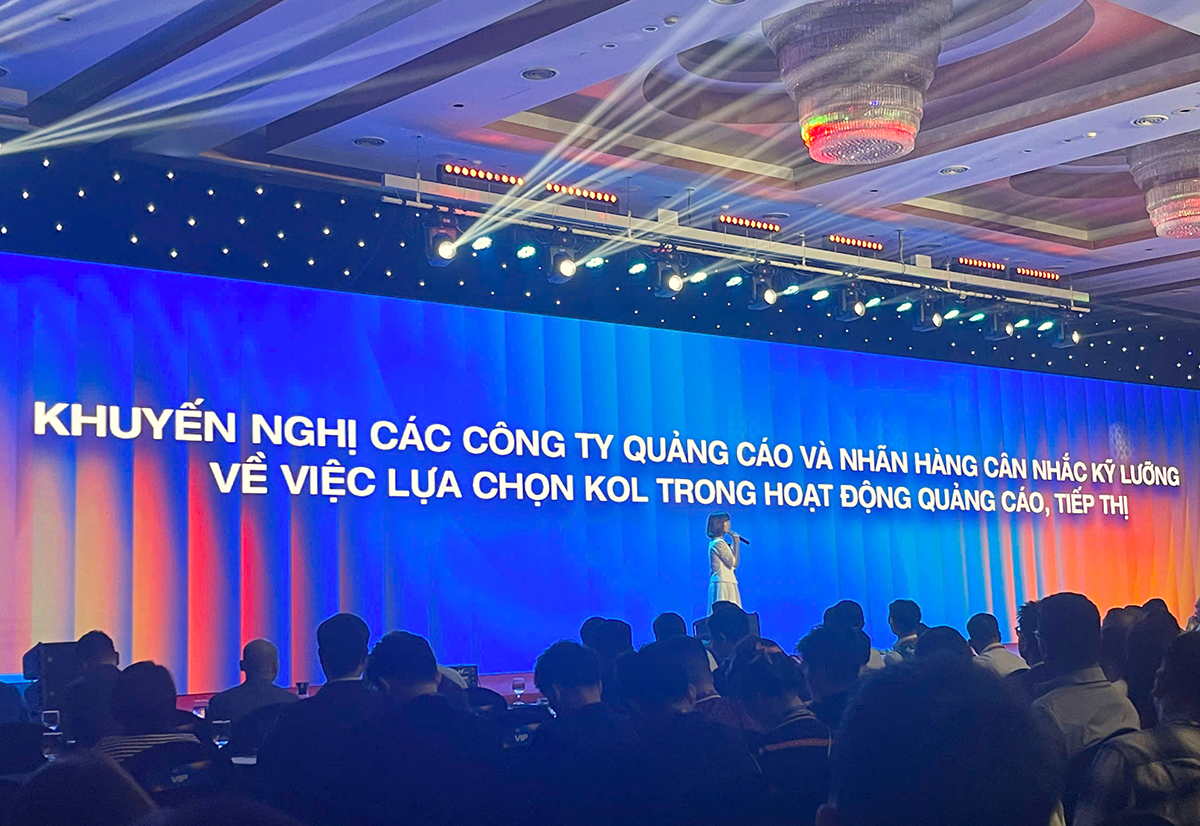 |
Nguyen Thi Thanh Huyen's message at the conference. Photo: Pham Du |
Nguyen Thi Thanh Huyen's message at the conference. Photo: Pham Du
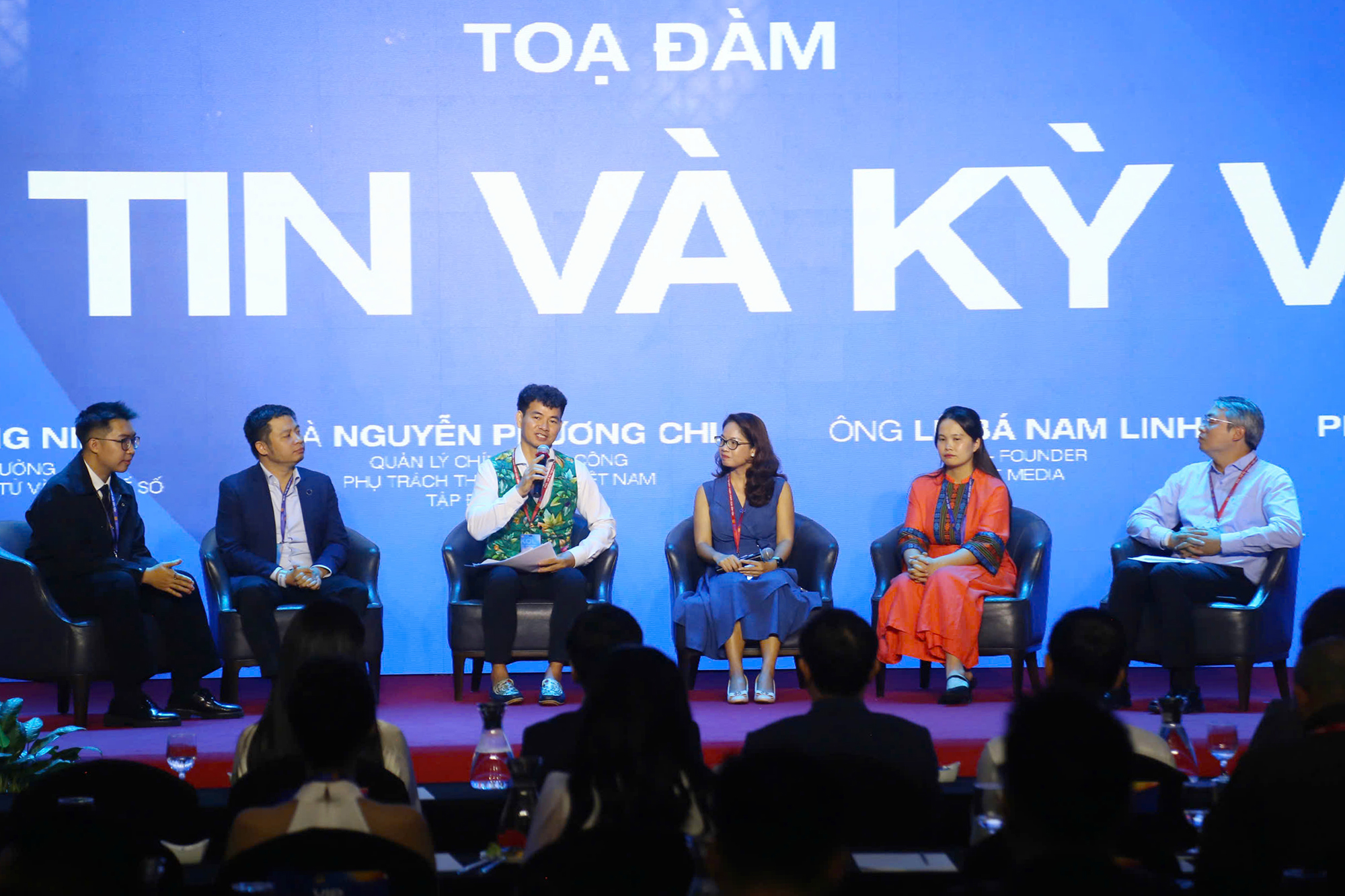 |
Guests at the discussion. Photo: Pham Du |
Guests at the discussion. Photo: Pham Du
Pham Du





